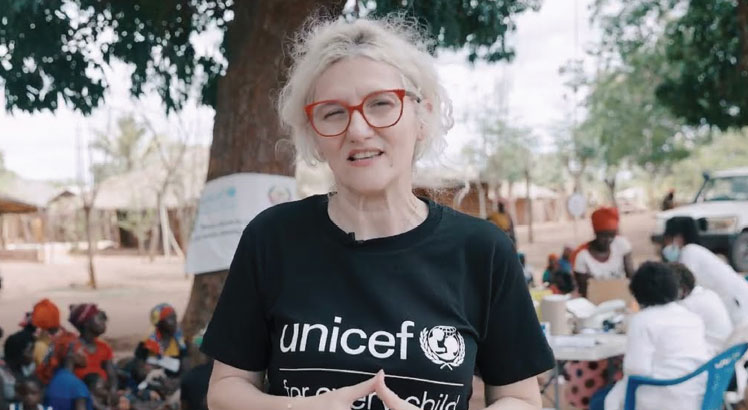45m children under threat to climate change—Unicef
The United Nations Children’s Fund (Unicef) has warned that about 45 million children in southern and eastern Africa are at risk due to climate change effects worsened by the prolonged El Nino-induced heatwave.
In a press statement issued yesterday, the agency says the children are already facing multiple and “often overlapping crises” intensified by climate change, including cholera outbreaks, malnutrition, drought and floods.
It cites Malawi, Zambia, Zimbabwe and South Sudan as some of the worst affected countries.
Reads the statement in part: “Over the weekend, the President of Malawi declared a State of Disaster in 23 out of the 28 districts in the country, due to El Niño conditions.

becoming malnourished
“Inadequate rains, floods and prolonged dry spells have led to severe damage to crops and food production, impacting two million households [an estimated nine million people, including 4.59 million children].”
In Zambia, where the government declared a national emergency last month, the drought has affected 6.5 million people, including three million children.
On the other hand, in Zimbabwe, the El Niño phenomenon has disrupted rainfall patterns, leaving families grappling with food and water insecurity.
Meanwhile, South Sudan authorities recently ordered the closure of schools due to extreme heatwave, a move that has affected 2.2 million learners.
Unicef regional director for eastern and southern Africa Eva Kadilli said climate shocks impacted the very elements that children needed to survive, including clean water, food, shelter, learning and safety.
The press release quotes her as having said: “School closures disrupt education gains that were made. Communities who depend on agriculture face crop loss, resulting in children becoming malnourished or being forced to work to support income generation.
“Challenges in accessing clean water expose children to disease, affect livelihoods and cause forced displacement.”
Meanwhile, the organisation has outlined a number of programmes and services it is undertaking in response to climate change and other crises in the regions.
The interventions include cash transfers, provision of nutrient-dense food and micronutrient supplements, building shock responsive education systems as well as collaborating with partners on climate resilient water solutions.
On Saturday evening, President Lazarus Chakwera declared a State of Disaster in 23 of Malawi’s 28 districts, saying preliminary assessment showed that close to two million farming households were affected.
Last week, Zambia President Hakainde Hichilema described the drought in his country as the worst in the past 100 years.





